Managed Beehives for Your Property in the Raleigh-Durham Area
Since 2010, The Best Bees Company has offered a unique, turnkey way for individuals and organizations to make a positive impact on the environment. Operating in Raleigh since 2021, Best Bees is now the leading beekeeping service in Raleigh and throughout the greater Raleigh-Durham area.
We work with both residential and commercial clients, including Enviroflight and the GSA Century Station Federal Building and US Post Office.
Request a Phone Assessment
Find out if your property is right for bees
Our Mission
To expand the bee population while improving the health of honeybees and other pollinators here in Raleigh and around the world. Our locally certified beekeepers install and manage hives on your property and use the data we collect to drive the science of pollinator health forward with scientific partners that include Urban Beekeeping Lab, NASA, MIT and National Geographic.


Services Provided in the Raleigh Area
We offer innovative solutions that can help bring your corporate sustainability programs to life. These include the highest standards on beekeeping, as well as developed workshops and programs that will engage your community — employees, guests, tenants, community leaders, and the public — in your sustainability work.
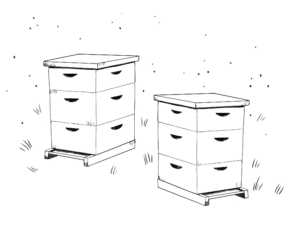
Commercial Services
Beekeeping for Your Residential Backyard
If you’d like to save bees, build a healthier environment, pollinate your garden, and have your own honey harvest, then our residential service is perfect for you! We offer turnkey beekeeping, honey harvesting, and DNA analysis designed for homeowners in a wide range of environments. Regardless of the size of your property — whether you garden on a balcony or have acres of land — we can install and manage one or several hives for you.
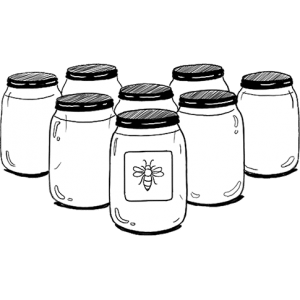
Residential Services
Beekeeping Education
![]()
We offer a number of educational programs at varying price points that have proven popular with commercial clients, schools, gardening clubs, and organizations promoting sustainability.
Pre-recorded and live hive tours
Experience a guided tour as one of our bee experts takes you on a walk-through of your hive visits and inspections. Get a glimpse of the busy life of bees, and learn more on how to keep tenants engaged with their local environment. Live tours are available for up to 20 participants.
Meet an expert beekeeper
Participate in a beekeeper-led webinar and Q&A session. This virtual event is a great opportunity to learn about your bees through the lens of a beekeeper. We’ll discuss the data collected from your beehives, why bees matter, and what it's like to take care of your bees.
Virtual keynotes
Gain insight into the world of bees with our Chief Science Officer and Founder, Dr. Noah Wilson-Rich. Noah's knowledge of honeybee health and his passion for bee research will leave your audience spellbound, and with a wealth of new insight about our natural world. Our virtual keynote package includes signed copies of his book, The Bee: A Natural History.
We also offer free and open online programs, such as live meetings with beekeepers and educational webinars.
How Professional Beekeeping Works
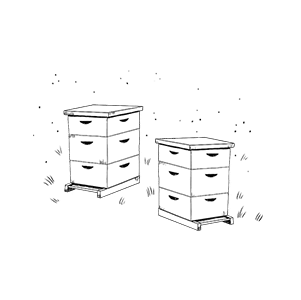
Installation
We help you choose an ideal location to establish one or more beehives at your home or workplace.
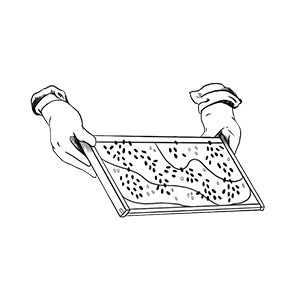
Maintenance
Our impassioned and experienced beekeepers service your beehives once a month, providing high-quality care and detailed reports.
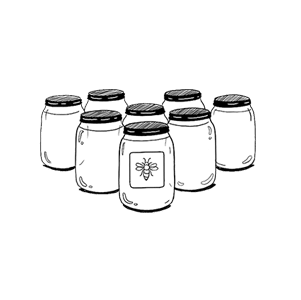
Harvesting
You keep 100% of the raw honey produced. We’ll handle the rest— small batch extraction and bottling with personalized labels.
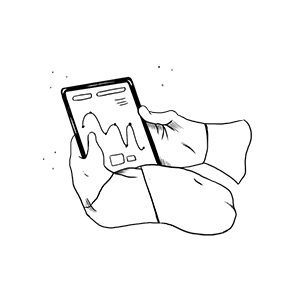
Research
At every visit, we collect data and share it with our research partners to advance the science of beekeeping and improve the health of pollinators worldwide.
Safe
Our honeybees, Apis mellifera ligustica, are the most docile species of honeybees, making our hives extremely safe and the instance of stings very unlikely.
We situate our hives in safe locations, secured from animal intrusion and weather damage.
Secure
Our beekeepers have extensive experience working in densely populated areas in and around Raleigh, and are experts at safe hive placement on rooftops, balconies, and gardens. They’ll work with you to site your hives in visible, low-traffic areas, where you can safely enjoy observing your bees as they come and go.
Insured
Our beehives and beekeepers are fully insured for personal liability and damage. We can provide you with a Certificate of Insurance (COI) if needed.

Beekeeping Laws in North Carolina and the Greater Raleigh Area
Beekeeping is legal in North Carolina; state laws prohibit cities and counties from enforcing any ordinance that prohibits people from owning or operating five or fewer beehives on less than two acres of land.
Registration with the North Carolina Department of Agriculture and Consumer Services is recommended but not required. Regulation of the placement of beehives varies upon municipalities.
All of our beekeepers are locally licensed to use pesticides and are certified for safe roof-top work.
Raleigh Service Area
We service hives in Raleigh and throughout the greater Raleigh-Durham area, including in parts of the following counties:
Wake County
Durham County
Chatham county
Nash County
Harnett County
Johnston County
What's Included
- Site Evaluation
- Hand-crafted, all-natural beehive equipment installed onsite
- A colony of docile honey bees (Apis mellifera ligustica)
- Monthly maintenance visits and follow up reports
- Advanced scheduling so you can alert your team
- Full-time customer service team available by phone or email
- Raw honey, harvested and bottled just for you
- Replacement colonies provided at no cost
- Fully insured professional service
About Local Honey
Honey production varies from colony to colony, depending on the strength of the queen bee, the health of the hive, and the availability of nourishment. New colonies tend to produce less honey than established ones. When there is a surplus of honey, we will harvest and jar it for you.
The composition and flavor of honey varies from hive to hive as well, depending on the floral species available to pollinate. This means that honey from your hive will have a unique profile. Tasting it, you’re tasting the composite of all the flowers your bees have visited!
In our studies of honey DNA, we’ve found that honey from urban hives includes a much wider range of species—as much as eight times more than honey from rural and suburban hives! A HoneyDNA analysis of a honey sample from a client site in downtown Raleigh shows that the bees have been spending a majority of their time foraging from crape myrtles. These colorful, flowering trees adorn many of the sidewalks in the city.
Many of our residential customers are planting native species in their gardens to help both honeybees and native pollinators.
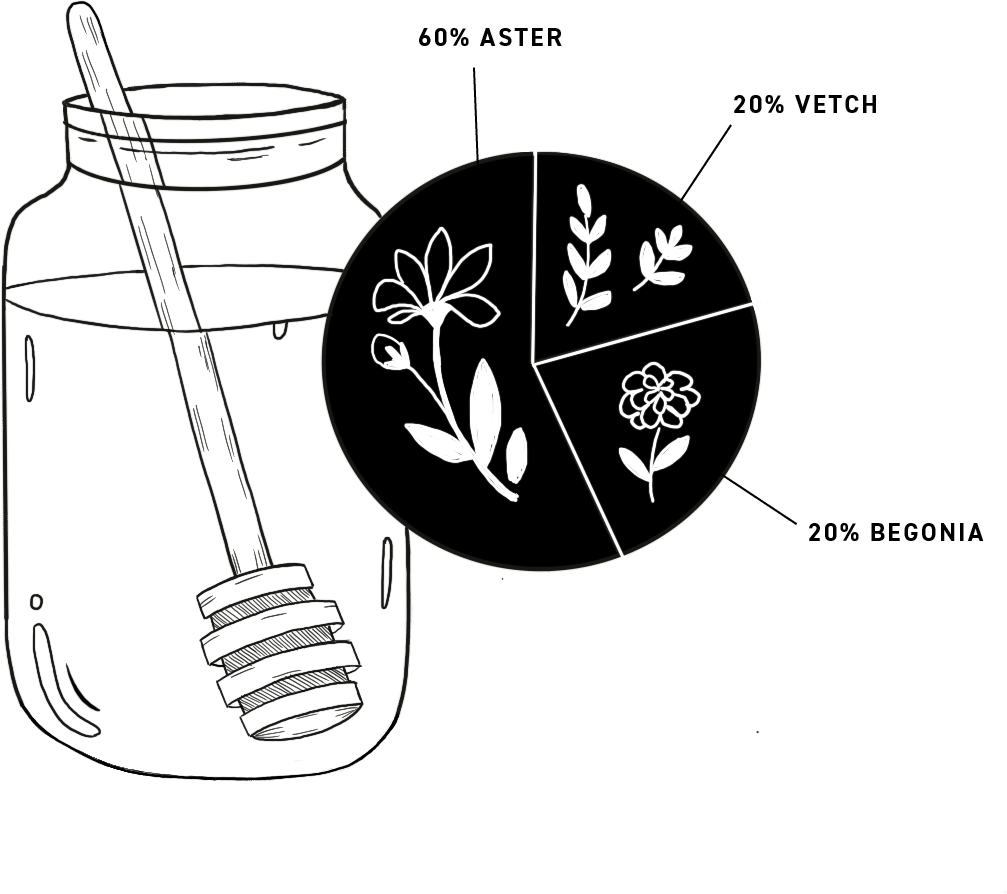
HoneyDNA
We pioneered the process of identifying the exact percentage of various pollen species found in honey through advanced genomic sequencing. Understanding where bees foraged reveals which plants best feed pollinators in the local environment.
Pollinator Friendly Plants
At Best Bees, we encourage our clients to landscape their property with pollinator friendly plants, if space allows, add ground level and roof-top pollinator gardens. Use a variety of trees, shrubs and plants that will provide forage throughout the year, such as purple coneflowers, pussy willows, and goldenrod, all of which work well in Raleigh area gardens. For a list of pollinator friendly plants native to North Carolina and the Mid-Atlantic region, visit https://xerces.org.
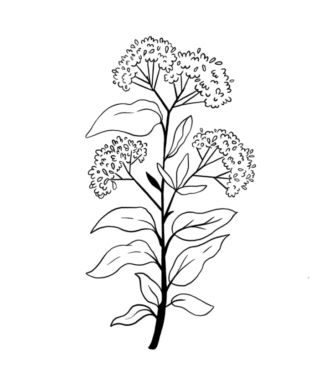
Already Have a Hive?
At Best Bees, we’re proud to be a part of the local beekeeping community in every area in which we work. If not already a member, we encourage you to join the North Carolina State Beekeepers Association, the Wake County Beekeepers Association, the Durham County Beekeepers, or your area’s local beekeeping association – North Carolina has over 80 beekeeping associations across the state!
Join our Citizen Scientist movement; here are some ways you can participate:
- Plant more pollinator habitats on your property
- Use bee-safe pesticide alternatives
- Get involved in local and national lobbying
- Submit your honey for HoneyDNA
You can also post your data to bee Citizen Science programs like iNaturalist, The Great Sunflower Project, and Beecology Project.
We gladly share the learning from our research and our best practices with everyone. To learn more about the findings of our research work, visit https://bestbees.com/white-paper-resources/. To watch one of the TED Talks by our Founder and Chief Science Officer Dr. Noah Wilson-Rich, visit our Research page https://bestbees.com/research/ . Finally, to stay in the loop on our latest thinking, read our blogs at https://bestbees.com/blog/.
Unique Challenges and Opportunities to Beekeeping in the Raleigh-Durham Area
Beekeeping is a very popular hobby in North Carolina. The NCBA, is the largest and one of the most active state beekeeping organizations in the country. Beekeeping in the Raleigh-Durham area is more than just a hobby; it’s a community of like-minded people who love bees.
North Carolina's topography and its humid, subtropical climate makes it rich in biodiversity. From the Appalachian Mountains in the west to the Atlantic coast in the east, NC has a variety of ecosystems and growing zones. The bees benefit from diverse and plentiful forage options.
The city of Raleigh, in particular, has more landmass dedicated to parks than the average American municipality. According to Best Bees Raleigh Beekeeper, Chuck Tipton, poplar trees are very prevalent in the Raleigh-Durham area.
“The bees love them,” Chuck said. “That's probably the main pollen source in the springtime, and we’ve also got purple coneflower, bee balm, great blue lobelia, and goldenrod.”
Chuck and his daughter, Amber, started working for Best Bees together in 2021. He describes their experience as an adventure; soon after being hired, they were installing 11 beehives onto three different client sites. Preparations were fast-paced, but they hit the ground running and the installations were successful.
“I love a good challenge,” Chuck said. “Like I said earlier, it’s really been an adventure."
Bringing Innovative Beekeeping Practices to the Raleigh Area
With every hive a datapoint, we’re able to observe bees in a wide variety of conditions and test alternative treatments in hives across the country. This allows us to introduce successful innovations to Raleigh and take learning from our Raleigh hives to other cities. “It's a good working relationship, you know? We send information both ways,” Chuck said.
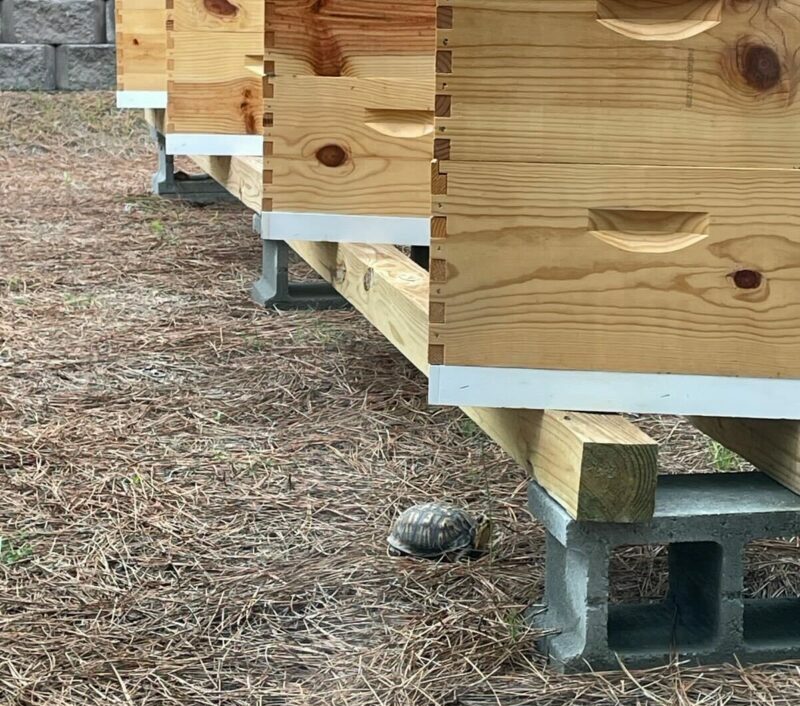
Frequently Asked Questions
We install and maintain honeybee hives on your property. Our expert beekeepers monitor the health of your bees and perform a variety of tasks throughout the year to help them thrive. At each visit, we also capture a range of metrics and share the data with renowned research partners to help the scientific community better understand the plight of pollinators. Towards the end of the season, we extract the honey and jar it for you.
About once per month for our Raleigh Area hives. If your bees are distressed and need extra support, supplemental visits are included. We coordinate each visit in advance and send a summary report afterward.
Only a few square feet! A beehive takes up as little as 2’ x 2’ x 3’. Our beekeepers need a few feet around the hive to access it, and the bees’ flight path will need to be unrestricted.
In the Raleigh area, we typically install hives when all threat of winter has passed, which is typically in late February-early March. Installations after June are accommodated on a case by case basis, depending on our inventory levels.
We fully guarantee the health of our bees and queens. If a colony dies, we’ll replace it with a healthy one from our own stock at no additional cost.
Our Boston-based headquarters is staffed full time and available Monday through Friday during work hours by phone or email to answer any questions. When a colony requires extra attention, additional visits are made at no cost to you.
Yes, we provide a range of event support packages for our commercial clients. See Hive Programs for Commercial Customers for details.
Green roofs earn credits toward a building’s LEED (Leadership in Energy and Environmental Design) certification. Green roofs provide vegetation for water control, wildlife habitat, and better urban air quality. Honeybees can help maintain the green roofs that are becoming more common in big cities and thus contribute to a building’s LEED rating.
We service hives in the city of Raleigh and throughout the Raleigh-Durham area, including (but not limited to) Chatham and Johnston counties.
We handle visit scheduling for you. We’ll contact you at least 72 hours in advance via email.

